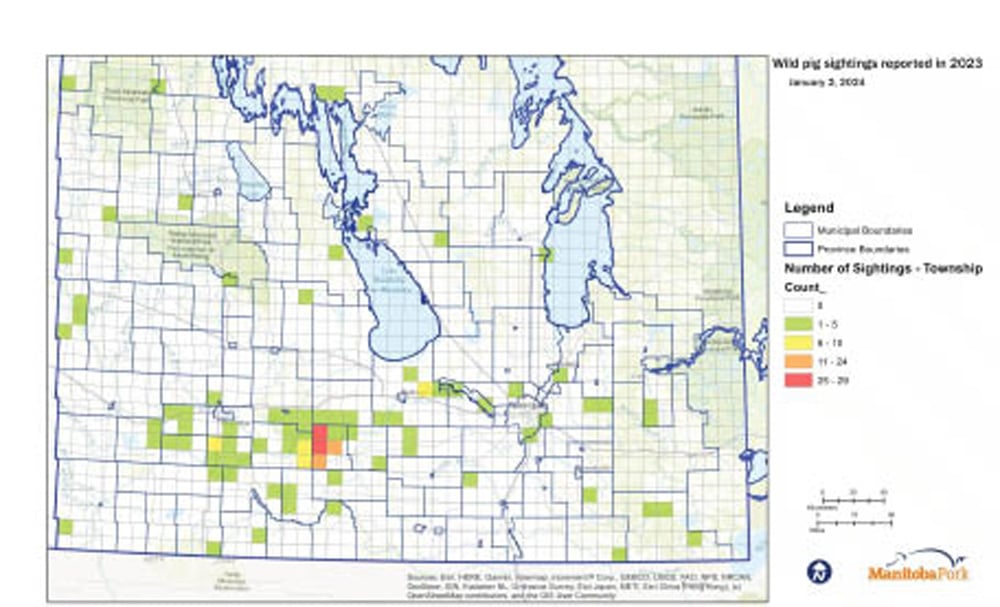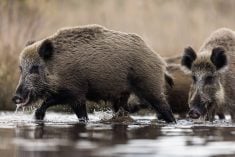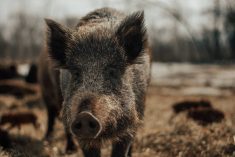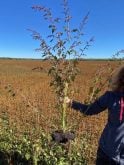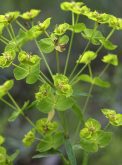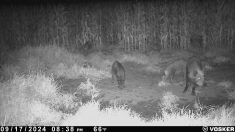Manitoba’s Squeal on Pigs campaign has gained traction every year, and 2023 was no exception.
The past year brought program expansion, according to a recent update summarizing the initiative’s activities.
Why it matters: Squeal on Pigs is reducing Manitoba’s wild pig problem and raising awareness of the invasive species.
Read Also
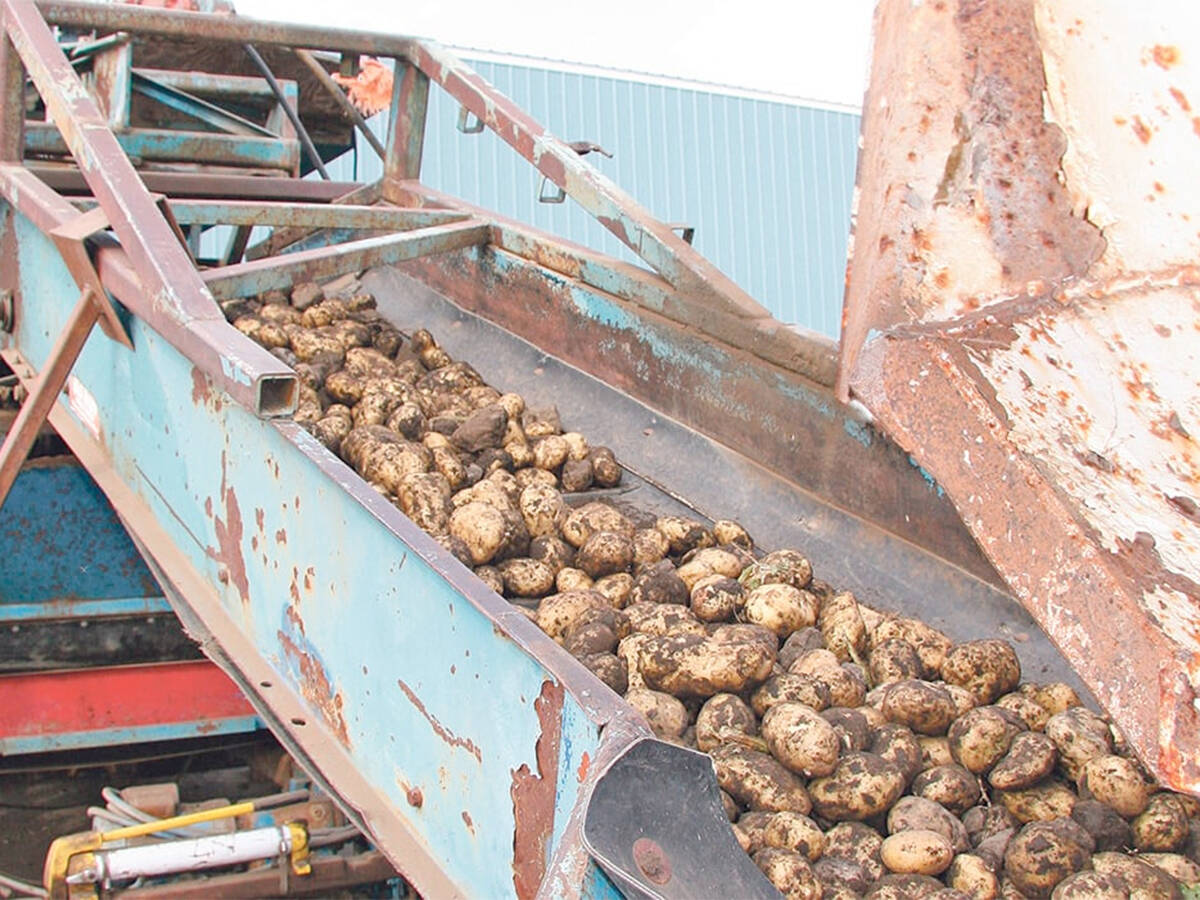
Potato growers beware new PVY strains
Newer strains of potato virus Y (PVY) are creating headaches for potato farms in Eastern Canada, and Manitoba farmers should pay attention
Last summer, Squeal on Pigs Manitoba got a windfall from the federal government, linked to African swine fever prevention. Wild pigs are a noted vector for the disease in other parts of the world, and control is among the action items pushed by Canada’s ASF executive management board.
The funding, more than $944,000, was split between Squeal on Pigs, the development of a local ASF plan and communication efforts about ASF with small-scale pig farmers.
The money helped bolster the toolbox, the Squeal on Pigs report said. At the time of the report, the initiative had 30 traps, 90 trail cameras and two drones capable of thermal imaging, along with the support capacity and technicians needed for a province-wide program.
“Over the last year, we have developed a full-fledged information and mapping system that allows us to track sightings reported by the public, manage baiting and trapping sites, and track removal success,” the update read.
“Our website includes maps of recent and historical sightings, with a new map added every three months to provide a more accurate representation of wild pig movements.”
Squeal on Pigs got 157 sighting reports through 2023. It removed 127 pigs, and there was an average of 25 traps and 80 trail cameras in service in any given month. Staff were in contact with about 150 landowners per month in efforts to track and trap the pigs, the yearly update said.
After 2022, the program reported 127 sightings, leading to 122 pig removals that year.
“2022 was really our start up year,” said project co-ordinator Wayne Lees. “We learned a few things from that.”
Cold weather trapping
One of those lessons came from trying to trap wild pigs in a colder climate.
Manitoba pigs tend to live in smaller groups and move more than those in the southern U.S., Lees noted. Additionally, they seem better adapted to natural foods. They’ll still take down standing corn, but are more than willing to forage for acorns, grubs and other non-agricultural feed sources.
“They tend to do a lot of environmental damage,” Lees said.
Those local quirks make for a population that is hard to track or control. In response, Squeal on Pigs has adjusted its strategy.
“The biggest issue that we face is knowing where to look in the first place,” Lees said. “That’s why the public reporting is so important to us.
“Once a report comes in, a whole series of events follows that. Usually what we’ll do is contact the person who reported it, to see if there’s any more information that they can offer. We’ll contact all the landowners in that area and see if they’ve seen any evidence of wild pigs, and if they have, then we’ll start to engage the landowners … they’ll put up a trail camera and start setting up bait. If the pigs will start to come to that, then we’ll set up a trap.”
Squeal on Pigs has no regulatory authority, so landowner partnerships are key.
Taking the ‘super’ out of ‘superpigs’
Lees says he’s happy with the initiative’s outreach, both in 2022 and 2023. Squeal on Pigs racked up 28,700 website visitors last year and gave 22 presentations to farm groups, the Manitoba Association of Watersheds, local governments and other groups with a similar mandate.
The Prairies’ wild pig issues have garnered significant attention, not only in farm and conservation circles, but from the wider media.
In late 2023, media outlets ranging from Global to the Toronto Star to CBS featured headlines warning of Canadian “superpigs,” and the potential threat they posed to the northern U.S.
Public attention is good for growing awareness, but Lees objects to the term “superpigs.”
“Calling them superpigs isn’t really helpful,” he said. “These pigs are very intelligent. They will adapt to local conditions, but recognizing that each province has a wild pig control strategy is very important.”
Taking the fight into 2024
Regions around Spruce Woods Provincial Park continue to report the most concentrated wild pig sightings in the province, although the animals have been spotted sporadically in most regions.
Areas around the provincial park have been identified as a wild pig foothold for years. Lees said, he expects more hunting and trapping efforts will take place there.
An aerial survey over southwestern Manitoba is another future project. Squeal on Pigs says the survey will finish over the winter and is a collaborative effort with Manitoba Natural Resources.
DNA-based tracking, which the program started exploring last year, will also continue. Squeal on Pigs is working with Assiniboine Community College and Winnipeg’s BDX Laboratories to develop a test to detect wild pig DNA in water, using samples collected in September.
Canada’s patchwork of tracking systems might also be on the way out if Squeal on Pigs has its way. The group is working with Animal Health Canada to build a national reporting database. Negotiations began in December, after the Manitoba Pork Council offered to host the database.
A Canadian Wild Pig Summit is also in the works for 2024, the update read.
“We’re doing the right things … this is going to take time,” Lees said. “It’s not going to be a quick fix, but if we’re persistent, I think we can actually eliminate wild pigs from Manitoba.”


